1862 Civil War Letter Archive Siege of Yorktown Lt Abraham Young, 101st Penn
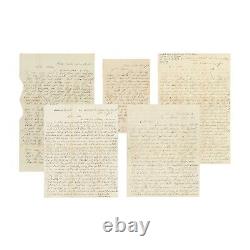
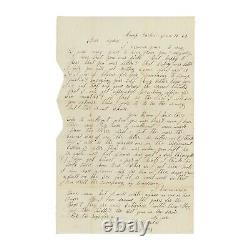
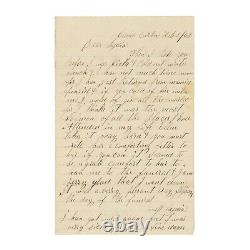
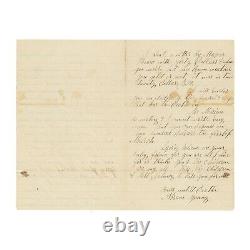
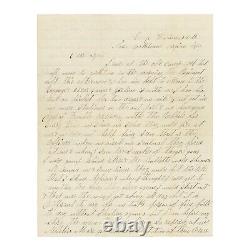
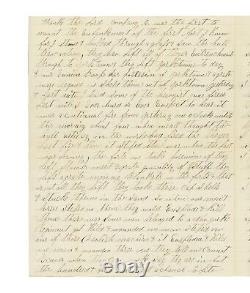
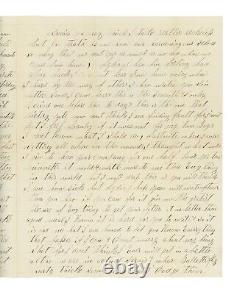
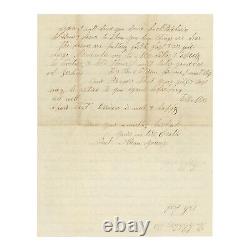
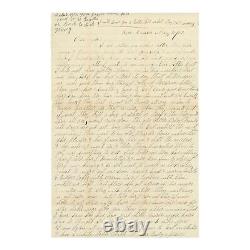
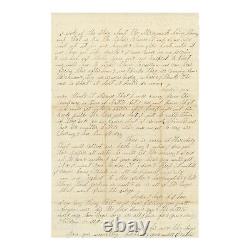
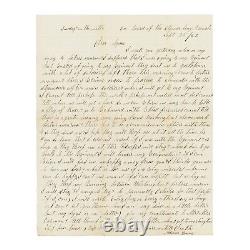


These five letters were written by First Lieutenant Abraham Young of the 101st Pennsylvania between January and September 1862 to his wife Lydia. The first two letters were written from Camp Curtin near Harrisburg, where the regiment was trained, while the other three take place during and in the wake of the Peninsula Campaign. Particularly interesting in the third letter in which Young describes the dangers of the picket line and discovering the rebel entrenchments at Yorktown empty. Young is listed in HDS as a forty-three-year-old jeweler in 1861.
The letters suggest that two other Youngs in his company-eighteen-year-old Private Oscar F. Young and sixteen-year-old Private James E. Young-was also a member of the company. The first letter was written to Lydia on January 16, 1862, from Camp Curtin near Harrisburg, Pennsylvania.
Young had been in the Army since the previous November and had evidently had Lydia there with him for a time. In the letter he writes, I feel as if I was to blame for your coming to camp Curtin & enjoying yourself any better than you did. But keep up good courage. He adds hopefully that Colonel Joseph H.Wilson thinks that I will get appointed recruiting officer for six months & if that be the case I will see you oftener than I would to be in the army. " He then describes a large amount of regimental paperwork he had done believing that "the more the colonel sees of me the better.
He likes me & I think that I will be the favored one in the regiment. "Oscar is better than he was when you left, " he writes. He is quite well, but James has got a sore throat & I have got him a pair of boots. I think he took cold from bad shoes, so I got him boots. I have had a lame hip for two or three days from a fall on the ice, but it is most well so that I can drill the company by tomorrow. Young closes the letter remarking that he had issued guns for the boys & they are well satisfied with them. They got the rifle & the best gun in the service. The second letter was written two weeks later on February 1. In it Young describes having attended a funeral. Ellen takes it very hard & you must write her a comforting letter to her if you can. The third letter in the archive was written on May 4 while the regiment was participating in the Peninsula Campaign. Written from Camp Winfield Scott, Young describes the dangers faced as an officer on picket duty on the Yorktown line.The Regiment left this afternoon & I have been left to attend to the baggage & Oscar, James, & Zerbino is with me. I have been out on picket for two days & one night & just got in. We were stationed on the outpost & we had a good deal of trouble yesterday with the Rebels, for every time we showed ourselves they would fire at us & we could not help being seen-that is, the officers. When we visit our sentinel they fired at me & I saw the smoke of their guns I would jump behind a tree & the bullets would shower all around me, & sometimes they would hit the tree that I stood behind & when I thought I could get to another tree before they fired again I would start out, & that was the way I got along all day, but it is different today for we took possession of five forts today without shooting a gun. The men that was firing so rapidly at me-Martin Moore got around & shot two of them dead, thank the Lord.
Young then describes the Union troops discovering that the Confederate Army had withdrawn from their entrenchments during the night. Company B was the first to mount the embankment of the first fort. They have left all of their entrenchments through to Yorktown, & left Yorktown today, & our Union troops has possession of Yorktown & a great ways beyond. We shelled them out of Yorktown yesterday & last night I heard some of the heaviest guns fired last night I ever heard or ever expect to hear.
It was a continual fire from yesterday one o'clock until this morning about four, when we all thought the whole artillery in the world had fired. Then their last fire & then it stopped. Then was when the last was leaving. The forts we took possession of. They left flour, meat, & great quantity of stuff.
He then describes land mines left by the Confederates. Indeed the first use of this heinous weapon was recorded during the siege of Yorktown. They left a great many blankets in the forts, & that is not all they left.
They took these cap shells & stuck them in the sand so when our men & horses stepped on them they would explode & kill them. There was some men belonged to a New York regiment got killed & wounded. One man stepped on one of those devilish machines & it exploded & killed one man & wounded three. One they tell me cannot recover. Near the end of this letter Young turns his attention to thoughts of home.
"Lydia, you may think I talk rather reckless, " he writes, but the truth is we have been hardening ourselves so long that we don't care as much as we did when we came from home. " He then expresses the familiar soldier's request for more frequent letters from home before telling Lydia, "don't worry about my being shot, for I don't think I ever will get in a battle, although we are in actual service & where bullets fly purty thick sometimes, but I dodge them. Young wrote the fourth letter on May 11 from Roper's Church as the Army of the Potomac advanced up the peninsula toward Richmond.
Young opens by expressing his delight at having awoken from a nap to find a letter from Lydia. "That letter done me more good than anything I could of received, " he writes. He next describes facing a stretch of hunger and his interaction with the overseers of a local plantation.I have seen the time when I have been without for twenty-four hours & then that is not all travelled all day. We have to endure hardships for that is war. When the men gets out of meat they kill a hog or sheep or beef, & then they will live all day. When I came from the old battlefield I travelled all day & did not get anything to eat until the next morning.
I then went to an old planter house where the old planter & his family had gone & left the overseer & his wife, & I went in & told them I wanted them to get me something to eat. She told me they had nothing for I told her I knew better & I would have some breakfast for I was hungry, & so she went to work, or the darkey went to work, & got me some ham & eggs, & warm biscuits, & butter, & coffee with cream in, & I boarded with them until we left that place.When it was time for Young to move on the overseer's wife feared the plantation's slaves would evidently hurt her family. Wanted me to stay with her until they went away or got cooled down, but I told her I could not stay, & I would like to of stayed with her & her husband if I could for she looks more like you than any other woman that I ever saw. She had eyes just like yours & Major Hoard said he thought she looked very much like you, & I know Lydia it was a great treat for me to eat on a table & have a white table cloth. It was truly a pleasure. Near the end of the letter Young turns his attention to the Merrimack, which had been scuttled by the Confederates the previous day.
I spoke of the story about the Merrimack being blowed up. The Rebels blowed it up so we could not get it in our hands, & two other boats with it. We have got the York & James River in our possession & we have got them penned in & we expect, too, that we will have to fight them tomorrow. We can hear firing this afternoon & we think they are coming from Richmond.
They are cornered everywhere & I think the war is short-at least it looks so now. The fifth and final letter in the archive was written September 28, 1862, while aboard the steamer Long Branch. In it he describes being detailed on special duty. I wrote you yesterday when on my way to Fortress Monroe & I supposed that I was a going to my Regiment, but instead of going to my Regiment they sent me to Yorktown with a lot of soldiers. I left there this morning & came to Fortress Monroe & there I received orders to proceed to Alexandria with the steamer after more soldiers & when I will get to my Regiment I cannot tell-perhaps this week & perhaps not until next for I cannot tell when we will get a load so we can return.
We may have to take a flag of truce & go to Richmond with the Rebel prisoners. To have me here & what is the use of our being miserable when we can be happy? Abraham Young remained with the army until early November, when poor health forced him to resign.James Young is listed as having been discharged on September 8, 1862-presumably due to poor health. Both Oscar and Zerbino remained with the regiment, however, and were captured in April 1864 after the whole regiment was captured at Plymouth, North Carolina.
Both men were imprisoned at Andersonville but survived. The letters vary in size, the largest being legal size.
Condition is very good to excellent with light foxing and toning. Creases at the original folds. Slight edge separation on the February 1 letter. The full transcripts of the letters appear below. Camp Curtin Jan 16, 62.
Dear Lydia I received your [letter] today & I was very glad to hear from you & very sorry to hear that you was sick, but happy to hear that you was better & that Johnny was better. I hope you will get healthy again for I feel as if I was to blame for your coming to camp Curtin & enjoying yourself any better than you did. The colonel thinks that I will get appointed recruiting officer for six months & if that be the case I will see you oftener than I would to be in the army. But this is not sure.
You know I had three rolls to make out when you was here & now I have three more pay rolls to make out & more work than the three first, but the more the colonel sees of me the better. Oscar is better than he was when you left. I have no more time now but I will write again in one or two days. I have drawed the guns for the boys & they are well satisfied with them. Kiss the boys for me. Camp Curtin Feb 1 / 62. It was a very pleasant day, Friday, the day of the funeral. Well, Lydia, I have got well again but I was very sick for four or five days.I sent a letter by Major Hoard with forty dollars & when you write let me know whether you got it or not. It was in two twenty dollar bills. I will enclose you a notice of the funeral & a paper that had the death in [it].
Marion is waiting & I cannot write any more, but you can depend on two hundred dollars the first of March. Lydia, believe me your only friend, for you are all I live for or think [of].You & the children are my all. Kiss the children & tell Johnny to kiss you for me. Yours until death Abram Young. Camp Winfield Scott Near Yorktown Virginia [May] 4 / 62. When they can work sly they are in but the hundred & first never will get a chance to fight.
Lydia, you may think I talk rather reckless, but the truth is we have been hardening ourselves so long that we don't care as much as we did when we came from home. Lydia, I have been feeling bad along back [when] I could not hear from home-only when I heard by the way of others. I have written you six letters since I came here & this is the seventh & I only received one before this today & this is the one that Victory wrote. I don't know what I should do.
Last night when I was setting all alone in the woods I though what would I give to have your company for one half hour-yes ten minutes-it would be worth more to me than anything in this world. But Lydia, I hope you will write oftener than you have if you can, for it gives me the greatest pleasure of anything to get your letters. It is better than a good meal. Lydia, I will send you some huckleberries, blossoms, & leaves to show you how things are here. The leaves are putting forth fit & are quite large.Sikes & especially to Victory & tell them I will take good care of Zerbino. Kiss the children for me.
Your prayers that yourself & boys may be restored to you again before long. Spurr that Orrison is well & happy. From your unworthy husband Yours until death Lieut. Roper Church May 11 / 62.
I wrote to you in my other letter that I had not had a letter from you in two weeks & that was true, but I have had a treat today. That letter done me more good than anything I could of received-better than good food & something good to eat comes good sometimes, for I have seen the time when I have been without for twenty-four hours & then that is not all travelled all day. She got afraid of her niggers & wanted me to stay with her until they went away or got cooled down, but I told her I could not stay, & I would like to of stayed with her & her husband if I could for she looks more like you than any other woman that I ever saw. Lydia, you may think it strange that I was away from the Company in time of battle, but I did not know that we would get into a battle.
If I had I would not been back with the rear guard, but I will be with them if they ever go again, but I do not think we [will] ever see another battle. The news we get today are cheering & has been all day. I think we will be dismissed in July.
Give my respect to Mrs. Sikes & her daughter & tell them that Zerbino is well & so is all of the boys that went from the village. Lydia, I hope if I have said anything that mar your feeling you will forgive me, for the Lord knows you & the little ones & my two boys here are all I live for & you & my children are all I want. Your prayers for me & the boys From your unworthy husband, yours until death Abram Young.
Sunday on the water On Board of the Steamer Long Branch Septs 28 / 62. Dear Lydia I wrote you yesterday when on my way to Fortress Monroe & I supposed that I was a going to my Regiment, but instead of going to my Regiment they sent me to Yorktown with a lot of soldiers. My side is a little better but my legs is not better. Give my compliments to Mr & Mrs Carman & tell them I will write them a letter when I get to Washington if I have time. Please see my other items for more interesting Civil War letters, documents, and images.

